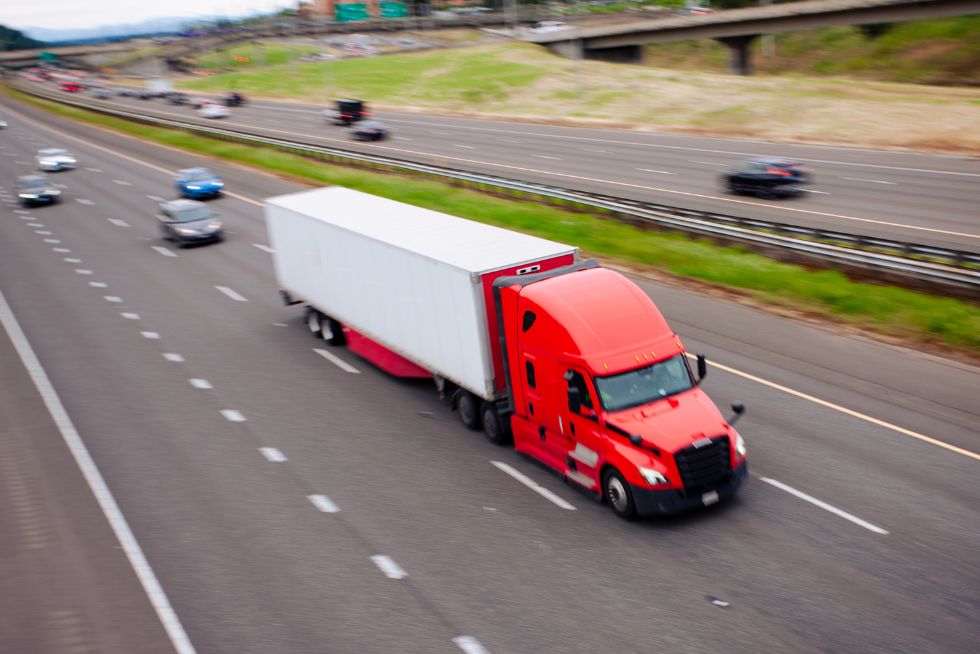Tractor-trailer crashes don’t just dent bumpers; they shatter lives. Victims of these collisions must act promptly to protect their rights and secure the services of experienced legal representation who can help them navigate the complex claims process.
Why Tractor-Trailer Accidents Are So Dangerous and Legally Complex
Big rigs can weigh up to 80,000 pounds when fully loaded, making them deadly in a crash. When one of these massive vehicles strikes a passenger car, the results are often catastrophic. Victims may suffer life-altering injuries like spinal trauma, traumatic brain injuries, or internal bleeding, sometimes requiring years of recovery or lifelong care.
These crashes are also far more legally complex than standard car accidents. Multiple vehicles may be involved, especially if the truck jackknifes or triggers a pileup on a busy road like I-80 near Lincoln.
Unlike a typical two-car crash, liability in truck collisions often involves multiple parties, including the driver, the trucking company, cargo loaders, or even maintenance crews. When you also consider higher insurance limits and critical evidence that disappears fast, it’s easy to see why these cases require skilled legal advocacy.
Preserving Critical Evidence Is Crucial
Unlike a typical car accident, where you might rely on police reports and witness statements, truck collisions involve technical data that can make or break your case.
For instance, imagine a tractor-trailer jackknifes on I-80 near Lincoln, slamming into three vehicles. One driver suffers a spinal injury, another’s vehicle is totaled, and a third is transported to a local hospital in an ambulance before giving a statement.
With multiple vehicles involved and conflicting accounts of what happened, black box data, dash cam footage, and maintenance records may be the only way to clarify liability. But if that evidence isn’t saved quickly, it can be lost forever.
Technical data may include:
- Electronic Logging Devices (ELDs): These black boxes record the truck’s speed, brake usage, and hours of service. Although regulations require trucking companies to retain ELD data for six months, many systems only store detailed logs for about 30 days unless the data is manually downloaded or backed up.
- Driver Logs and Maintenance Records: Fatigue is a leading cause of truck crashes. The logs could prove negligence if the driver violated hours-of-service rules or the vehicle wasn’t properly maintained.
- Camera Footage: Most dash cam systems, including those used in commercial trucking, record continuously but loop and overwrite footage locally, typically every 3 to 30 days, depending on the model and storage settings, unless specific clips are manually preserved.
- Witness Statements: Perspectives vary after multi-vehicle crashes. Promptly securing witness accounts can clarify how the collision unfolded and who is at fault.
An experienced attorney can send preservation-of-evidence letters immediately after the crash to prevent trucking companies from destroying or deleting critical data.
What You Risk Without Legal Representation
Trucking companies and their insurers immediately start working to protect themselves after a crash. Without a lawyer on your side doing the same for you, you may lose access to critical information and face pressure to settle before you understand the full impact of your injuries.
Here’s what’s at stake if you go it alone:
- Destroyed or Altered Evidence: Black box data, dash cam footage, and maintenance logs can be deleted, overwritten, or misplaced unless your lawyer sends a preservation-of-evidence letter.
- Blame Shifting: The trucking company may try to pin the fault on you or another driver to reduce their liability. Without someone challenging their version of events, it may stick.
- Lowball Settlement Offers: Insurance companies often offer quick payouts that seem helpful at first, but fall far short of covering long-term medical bills, lost wages, or future care needs.
A skilled Lincoln truck accident lawyer can intervene before this happens, preserving records, handling communications, and fighting to make sure you aren’t taken advantage of during the most vulnerable time of your life.
The Role of Federal Trucking Regulations
Another difference between truck and car crashes is the role of federal regulations. The Federal Motor Carrier Safety Administration (FMCSA) regulates the trucking industry, establishing stringent rules regarding driver hours, vehicle maintenance, weight limits, and substance testing.
When a trucking company violates these rules and that violation contributes to a crash, it can strengthen your legal claim. For example, if the driver had exceeded legal driving hours or the truck had faulty brakes that were never inspected, serious breaches suggest negligence.
Most accident victims cannot understand and apply these regulations alone, so legal guidance is essential.
Don’t Deal With Insurance Alone—Friedman Law Offices Can Help
After a traumatic tractor-trailer crash, it’s tempting to accept the first offer from the insurance company and try to move on. But settling too early, without knowing the full extent of your injuries or how fault will be divided, can leave you with far less than you need to recover.
At Friedman Law Offices, our Lincoln truck accident lawyers know how to take on powerful trucking companies and their insurers. We conduct detailed investigations, preserve critical evidence, and hold negligent parties accountable.
An 18-wheeler accident is a serious matter. Given what is at stake, the resolution of your claim can impact your health, financial stability, and long-term well-being.
Contact us today for a free consultation. You deserve peace of mind while you focus on healing. Let us manage the legal battle.

